EEC3731: The course facilitates achievement of the College of Education and Human Resources (COEHS)’s vision of being active leaders and responsive partners in the study and enhancement of teaching and learning within adverse learning communities. The course gives an overview of strategies that recognize the relationships that exist between health status, safety and nutrition and social and environmental factors. The course identifies current concepts in the fields of health, safety and nutrition and their relationship to the young child and teacher. It is designed to teach pre-service teachers ways to assist young children develop good habits and attitudes, and to assume lifelong responsibility for their own well-being.
EEC4054: This course is designed as an introduction to the knowledge, skills, and competencies for responsible service and leadership in diverse communities. Preparation for engaged, responsible, and active community involvement and leadership. The central objective of this course is to provide students with community experiences and reflection opportunities that examine community needs, the importance of civic engagement, and the effects of social injustice, particularly those that affect ethnic minorities and marginalized populations, in our contemporary American society.
EEC4244 is a community-based course designed to: provide students with intentional learning experiences that are designed to enhance student knowledge of young children, increase engagement in the early childhood community and provide for opportunities for personal growth. Relevance and applicability are important components of teacher preparation programs that require learning environments that translate into better pedagogy that prepare students for the real world classroom. As a growing number of campuses focus on restructuring learning environments to support college students’ learning and personal development in more experiential and applicable ways (Skop, 2006), communities are tapped to become educational partners in the learning process. Schooling provides only a part of the educational input that adds up to a learner’s enlightenment. The non-school acculturation of children and youth may be far more extensive and more valuable in helping them cope with, and succeed, in a real life environment (Orlosky & Smith, 1978). A curriculum is more relevant if it results in students who become involved in meaningful activities in and out of school. Course requirements may include, but are not limited to: field visits and assignments, university and community music performances, and theater performances. This course is designed to provide students with the knowledge and tools needed to be effective early childhood social studies teachers. Students will learn strategies that allow for diverse learners to experience social studies, and to integrate social studies with all other subject areas. In this course, together, we will attempt to establish a social curriculum that starts with the social studies, includes all academic areas, and expands out into the halls, the playground, and into the world.
EEC4260 is a designated community-based transformational learning (CBTL) course designed to provide students with intentional learning experiences that are designed to enhance student knowledge of young children, increase engagement in the early childhood community and provide for opportunities for personal growth The course involves a study of developmentally appropriate curriculum practices for children birth to age 8. The course facilitates achievement of the College of Education’s vision of being active leaders and responsive partners in the study and enhancement of teaching and learning within diverse learning communities. The course focuses on the acquisition of knowledge and skills that will enable students to understand the theoretical bases, and resultant trends of early childhood education. The students will understand the design of developmental programs for children ages 0 through grade 3.
EEC6205: In this course and in agreement with the conceptual framework, candidates are being prepared to impact the lives of children through advanced study of the nature and critical analysis of the learning environment in primary schools and the relationship of curriculum construction in the context of school reform. Includes study of theorists in the field, the historical traditions of school practice, and the scope and philosophies of curriculum aims. Local, state, national and international aspects of curriculum development and testing are presented.
EEC6611: In this course and in concert with the conceptual framework, prepares students to work with young children by providing a framework that covers historical and contemporary theories, trends, and approaches to working with young children (birth through age 8). Moreover, the course addresses current issues and challenges facing children and their families and those who work with them. This course is appropriate for early childhood educators and individuals who work with young children and their families in other venues, including healthcare and social services, who would benefit from information on early childhood development and learning.
EEC6756: In this course and in agreement with the conceptual framework, candidates are being prepared to impact the lives of children through advanced study of the nature and critical analysis of the learning environment in PreK-primary schools. Early childhood educators play a central role in helping children develop values and character traits, which will improve the quality of life for children and their families. This includes helping children develop positive feelings about themselves, increasing their ability to interact effectively with others, and teaching them socially acceptable means of behavior.

